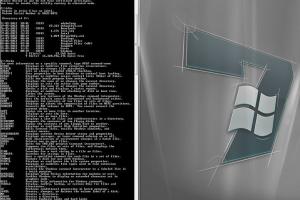Ultimate Guide on How to Be a Computer Geek: Skills, Tools & Tips

-
Quick Links:
- Introduction
- What is a Computer Geek?
- Essential Skills to Become a Computer Geek
- Tools and Resources
- Learning Path to Geekdom
- Building a Portfolio
- Networking and Community Engagement
- Case Studies of Successful Geeks
- Common Mistakes to Avoid
- The Future of Geek Culture
- FAQs
Introduction
In today's technology-driven world, being a computer geek is more than just a label; it's a lifestyle and a career path that opens up numerous opportunities. This comprehensive guide aims to equip you with the knowledge and tools to embrace your inner geek, whether you're a beginner or someone looking to deepen your tech skills.
What is a Computer Geek?
A computer geek is someone who is passionate about technology, computers, and everything related to them. This interest can manifest in various ways, including programming, gaming, hardware tinkering, and staying updated on the latest tech trends. Geeks are often characterized by their enthusiasm for learning and sharing knowledge.
Essential Skills to Become a Computer Geek
1. Programming Languages
Understanding programming languages is fundamental. Start with:
- Python: Great for beginners and widely used in various applications.
- JavaScript: Essential for web development.
- C++: Important for systems programming and game development.
2. Understanding Operating Systems
Knowledge of different operating systems (Windows, macOS, Linux) is crucial. Familiarize yourself with their functionalities and command-line interfaces.
3. Networking Basics
Learn the fundamentals of networking, including how the internet works, IP addressing, and network protocols.
4. Cybersecurity Knowledge
Understanding how to protect systems from cybersecurity threats is increasingly vital. Resources like CompTIA Security+ can be beneficial.
5. Hardware Knowledge
Familiarize yourself with computer hardware components, how to assemble computers, and troubleshooting techniques.
Tools and Resources
Here are some essential tools and resources to enhance your learning:
- Online Learning Platforms: Websites like Coursera, edX, and Udacity offer courses on various tech topics.
- Code Repositories: GitHub is a great platform to explore projects and contribute to open-source software.
- Communities: Join forums and communities like Stack Overflow and Reddit's r/learnprogramming for support and information.
Learning Path to Geekdom
Here’s a step-by-step guide to help you on your journey:
- Start with Online Courses: Enroll in beginner courses for programming and IT fundamentals.
- Practice Coding: Use platforms like LeetCode or Codewars to practice coding challenges.
- Get Hands-On Experience: Build small projects or contribute to open-source projects.
- Stay Updated: Follow tech blogs and podcasts to keep up with industry trends.
Building a Portfolio
Creating a portfolio is essential for showcasing your skills. Include:
- Projects demonstrating your coding skills.
- Contributions to open-source projects.
- Relevant certifications and courses completed.
Networking and Community Engagement
Engagement in the tech community can provide support and collaboration opportunities. Attend local meetups, participate in hackathons, and connect with like-minded individuals on social media platforms like LinkedIn and Twitter.
Case Studies of Successful Geeks
Case Study 1: Linus Torvalds
Linus Torvalds, the creator of Linux, started programming at a young age and developed a passion for computers that led him to create one of the most significant operating systems in the world.
Case Study 2: Margaret Hamilton
Margaret Hamilton was a computer scientist who led the development of onboard flight software for NASA's Apollo space missions. Her work is an excellent example of how a passion for technology can lead to groundbreaking achievements.
Common Mistakes to Avoid
As you embark on your journey, be mindful of these common pitfalls:
- Not practicing enough: Theory without practice hinders skill development.
- Focusing too much on one area: Diversify your skills to become a well-rounded geek.
- Ignoring networking: Building relationships can open doors to opportunities.
The Future of Geek Culture
As technology evolves, so does geek culture. Emerging fields like artificial intelligence, machine learning, and virtual reality present exciting opportunities for aspiring geeks. Staying adaptable and continuously learning will be key to thriving in this dynamic environment.
FAQs
1. What does it mean to be a computer geek?
A computer geek is someone who is deeply interested in technology, computers, and programming.
2. Do I need a degree to become a computer geek?
No, many successful geeks are self-taught and have built their skills through online courses and practice.
3. What are the best programming languages to learn?
Python, JavaScript, and C++ are widely recommended for beginners.
4. How can I find a tech community?
Look for local meetups, online forums, and social media groups focused on technology.
5. Is cybersecurity knowledge important for computer geeks?
Yes, understanding cybersecurity is crucial in today's digital world.
6. What resources can help me learn programming?
Online platforms like Codecademy, Coursera, and freeCodeCamp are great starting points.
7. How can I build a tech portfolio?
Create projects, contribute to open-source, and showcase your skills on platforms like GitHub.
8. What are some common mistakes beginners make?
Common mistakes include not practicing enough and neglecting to network.
9. How can I stay updated on tech trends?
Follow tech blogs, podcasts, and subscribe to newsletters in the tech industry.
10. What is the future of geek culture?
Geek culture will continue to evolve with advancements in technology, opening new opportunities in various fields.
By following this guide, you can embark on a successful journey to becoming a computer geek, equipped with the skills and insights necessary to thrive in the tech world.
References
Random Reads
- Removing books from your kindle guide
- How to catch kyurem
- How to catch groudon pokemon soulsilver
- How to set up tekkit server
- How to set up two computers for lan
- How to make a line graph
- How to make a magic the gathering deck
- How to connect alexa to computer
- Change primary email microsoft account
- How to set a ringtone from a song on iphone